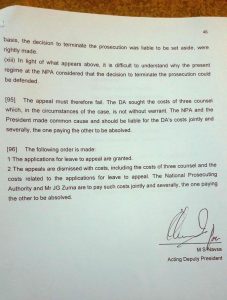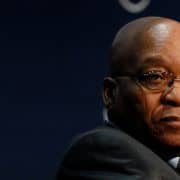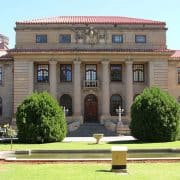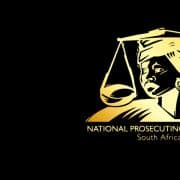|
Getting your Trinity Audio player ready...
|
The Supreme Court of Appeal (SCA) this morning ruled unanimously against President Jacob Zuma and the National Prosecuting Authority (NPA), who were appealing a High Court ruling of April 2016 which invalidated the 2009 decision to withdraw 18 charges of fraud and corruption, relating to 783 dodgy payments, against Zuma.
Handing down judgment this morning, Justice Eric Leach dismissed the appeal with costs including that of three counsel – which means that the taxpayer will have to cough up yet again for the drawn-out attempt by Zuma to evade accountability.
The High Court order therefore stands, and this means that the NPA must reinstate the multiple charges that Zuma has been dodging since 2009. The charges were first withdrawn on 1 April of that year by former acting national director of public prosecutions Mokotedi Mpshe.

Picture courtesy of Jeanette Chabalala @J_chabalala
“The decision of the High Court cannot be faulted,” Leach read from the judgment. “It is difficult to understand how the present regime at the NPA considered that the decision to terminate the prosecution could be defended. The appeal must therefore fail.”
The NPA now has to decide, just as it did back in 2009, whether to bring the charges against Zuma before or after the ANC’s December conference.
“We welcome the SCA’s ruling to uphold the High Court’s decision on this matter,” said our head of legal and investigations, Leanne Govindsamy. “The ruling is clear, the NPA acted irrationally in deciding not to prosecute Zuma. It is unfortunate that taxpayer money was used injudiciously in defending this matter but we are glad that after all these years, there is a ruling on this matter.”
Govindsamy added that the NPA must now do the right thing and pursue the prosecution of Zuma, objectively and without fear or favour.
“A prosecution in this matter does not only have direct implications for the rule of law and the functioning of democratic institutions but implicates the ability of the NPA to pursue cases of corruption with independence and impartiality,” she said. “Levels of corruption and maladministration have reached levels of incredulity, and have had severe impacts on our economy and the functioning of our state, resulting in widespread disillusionment of the people of this country.”
This case also highlights the urgent need to investigate and prosecute the ongoing, and increasing allegations of state capture – and that irrational decisions to not pursue corruption cases will not be tolerated.
The NPA is now called on to act not only on this matter, said Govindsamy, but also on a variety of widely known allegations of corruption and state capture. Their ability to act without fear and favour and pursue this and other cases of corruption is matter of national importance which cannot afford to be subjected to influence of any kind.
The SCA was scathing of the NPA’s handling of the matter right from the start. “The manner in which the affidavits were drawn and the case conducted on behalf of the NPA was inexcusable,” the judgment noted. The exclusion of the prosecution team from the final deliberations leading up to the decision to withdraw appears to have been deliberate and is itself irrational, Leach said of the original decision to withdraw the charges.








